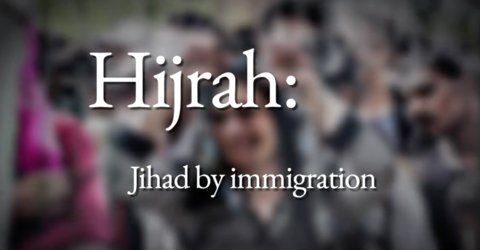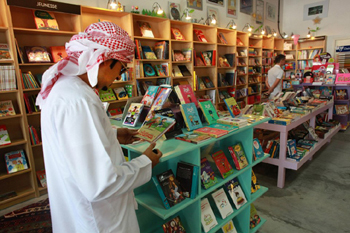I’m not saying that Zionism and ISIS are identical or anything as simplistic. But in trying to find generalizing labels for ISIS, such as being a fascist organization, or a totalitarian state and so on, and in the effort to draw parallels between different political experiences one can more subtly propose that ISIS and Zionism have some features in common.
ISIS just like Zionism (at least if we take seriously their media production, in itself a matter of debate) does imagine that a land is promised to them, or should belong to “the Muslims” at large, irrespective of creed, culture, local tradition, etc. ISIS does project the notion that the Muslim homeland involves a rejection of what is not Muslim, or at least a seclusion from what is perceived to be a political other. From the first issues of their newspaper Dabiq, ISIS highly encouraged people to emigrate to this land, to perform “hijra”, based on the idea that the prophet Muhammad also moved from Mecca to Medina to found his community of believers.
 Some may retort that Zionism was a secular ideology, yet the seriousness with which the Jewish movement treats passages of the Old Testament as part of the history of a political community is quite similar to what ISIS does with stories of the prophet and his companions, especially when it comes to relating these stories to a material experience involving the seizure of territory and management of population. In fact, the differences (how the religious uses secular textual technologies) as well as the similarities (what they actually do with it) can shed light on the peculiarity of state or other organizational formations in the Middle East.
Some may retort that Zionism was a secular ideology, yet the seriousness with which the Jewish movement treats passages of the Old Testament as part of the history of a political community is quite similar to what ISIS does with stories of the prophet and his companions, especially when it comes to relating these stories to a material experience involving the seizure of territory and management of population. In fact, the differences (how the religious uses secular textual technologies) as well as the similarities (what they actually do with it) can shed light on the peculiarity of state or other organizational formations in the Middle East.
The production of a climate of fear is essential to ISIS’s political strategy which involves pushing some people out of the territory they control (and thus turning them into refugees) and inviting others, who share their ideological views, to come and live with fellow like minded Muslims. Yet this was exactly what early Zionists practiced in different ways in the beginning of the twentieth century, with the most spectacular image being the Haganah and then the more virulently powerful Irgun, but also the less spectacular political tactics of various groups practicing land appropriations that follows similar rationales. These groups were definitely different from what ISIS is today, just as the context in which they operate, but the political logic is mostly the same.
Because these movements are essentially foreign and irremediably unpopular, their objective is to drive out an eternally discontented population, and to invite another that travels for mostly ideological reasons. In the failure to do so, these movements cannot survive on the long term, which is another reason why a politics of violence is inherent to their modus operandi. And ultimately, just like Zionists Jews imagined belonging to one secular rationalized community despite different geographies and histories, Muslims from all over the world travel to Syria and Iraq in order to belong to a similarly imagined community.


